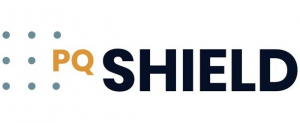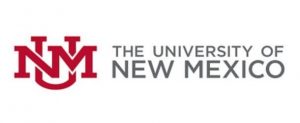Quantum News Briefs August 29: PQShield and Si-Five collaborate to advance post-quantum cryptography in RISC-V • Australia imposes strict export controls on quantum computing technology amidst backlash • Fujitsu partners with Osaka University to advance quantum computing capabilities • SCOPE AI announces improved QSE scalability & speed • University of New Mexico awarded $1M grant under the DEPSCoR Capacity Building Competition

PQShield and Si-Five collaborate to advance post-quantum cryptography in RISC-V
 PQShield, a leading quantum-safe cryptography provider, and RISC-V processing pioneer SiFive have partnered to deliver post-quantum cryptography on SiFive’s Essential and Performance high-performance processor families, protecting critical aerospace, consumer, defense, and automotive systems from quantum attacks and accelerating the adoption of NIST post-quantum cryptography standards on RISC-V technologies.
PQShield, a leading quantum-safe cryptography provider, and RISC-V processing pioneer SiFive have partnered to deliver post-quantum cryptography on SiFive’s Essential and Performance high-performance processor families, protecting critical aerospace, consumer, defense, and automotive systems from quantum attacks and accelerating the adoption of NIST post-quantum cryptography standards on RISC-V technologies.
RISC-V is rapidly emerging as the system architecture of the future, crucial to sectors as diverse as IoT, aerospace, defense, and automotives that increasingly require greater compute density and to handle greater workloads. There is a need to modernize RISC-V cryptography to ensure it can operate in these harsh environments in a quantum-safe manner that is secure and cost-effective – without diminishing speed or performance.
Integrating PQShield’s PQPlatform-CoPro technology with SiFive’s Essential RISC-V processors overcomes this challenge and delivers the highest level of protection and trust for automobiles, consumer devices, and defense and aerospace applications. The combination of PQShield’s cutting-edge security IP and SiFive’s world-leading processor IP yields a future-proof hardware security solution that can be deployed immediately to establish a quantum-resistant hardware Root-of-Trust – arguably the foundation of any secure system, and recently determined the highest priority use case by the NSA.
The Mandarin reports: “Australia imposes strict export controls on quantum computing technology amidst backlash”
 Australia’s Department of Industry, Science and Resources (DISR) has supported the Department of Defence’s recent decision to impose stricter export controls on quantum computing technology as per Tegan Jones August 29 article in The Mandarin. The new export controls on quantum computing are part of a broader effort under the AUKUS alliance, which was established in September 2021 between Australia, the US and the UK.
Australia’s Department of Industry, Science and Resources (DISR) has supported the Department of Defence’s recent decision to impose stricter export controls on quantum computing technology as per Tegan Jones August 29 article in The Mandarin. The new export controls on quantum computing are part of a broader effort under the AUKUS alliance, which was established in September 2021 between Australia, the US and the UK.
It has resulted in stricter controls on sensitive technologies.
Unless a license has been obtained, even accidental violations can result in imprisonment of up to 10 years with no criminal defence.
This now includes quantum computing, which the Department of Defence added to the Defence and Strategic Goods List (DSGL) last week as a regulated dual-use technology. This means quantum computers with 34 or more qubits and a two-qubit gate error rate beyond a certain level will be captured under these controls.
Push back:
Critics argue these measures could stifle innovation and unnecessarily complicate research and development efforts. Michael Biercuk, founder and CEO of quantum startup Q-CTRL, holds deep concerns about the effect of these controls on the quantum sector. He argues the regulations create unnecessary costs and slow down the local sector.
The quantum sector’s frustration is compounded by what some say was a lack of consultation in the lead-up to these changes.
The Tech Council of Australia (TCA), which also represents the Australian Quantum Alliance, has expressed concerns over the recent changes in export controls. This includes the potential negative effect on Australia’s burgeoning quantum sector. One of the primary issues raised in the submission is the lack of distinction between military and dual-use goods in the regulations.
Fujitsu partners with Osaka University to advance quantum computing capabilities

Fujitsu Limited and the Center for Quantum Information and Quantum Biology at Osaka University (QIQB) announced in news release August 28 the joint development of two new technologies for the space-time efficient analog rotation quantum computing architecture that will accelerate the realization of practical quantum computing.
Fujitsu and QIQB have leveraged these new technologies, one that improves phase angle accuracy during phase rotation and one that automatically generates efficient qubit operation procedures, to show that it is theoretically possible for a quantum computer to perform a calculation that would take a classical computer five years, in only ten hours. The two organizations claim that the calculation, a material energy estimate, would be possible using only 60,000 qubits, significantly less than the amount typically thought to be required for fault-tolerant quantum computation (FTQC) to surpass the calculation speed of classical computers.
These results claim to demonstrate for the first time how quantum advantage, i.e., quantum computers being able to solve problems faster than current classical computers, can be achieved in the early-FTQC era, which is expected to arrive around 2030.
The Center for Quantum Information and Quantum Biology consists of six research groups: Quantum Computing, Transdisciplinary Quantum Science, Quantum Information Devices, Quantum Communication and Security, Quantum Sensing, and Quantum Biology. QIQB promotes transdisciplinary research between each of these research groups and with other academic fields.
SCOPE AI announces improved QSE scalability & speed
 Scope AI Corp. announced significant enhancements to the scalability and speed of its flagship product, QSE Quantum Gateway in news release August 27.
Scope AI Corp. announced significant enhancements to the scalability and speed of its flagship product, QSE Quantum Gateway in news release August 27.
These advancements represent a key step forward in Scope’s commitment to providing performance and reliability without sacrificing security and data-privacy for businesses and private clients worldwide. The improvements in scalability and speed were driven by our proprietary entropy resampling engine and hardware accelerated optimizations. As a result, QSE Quantum Gateway can now handle individual requests in the sub-millisecond range and can handle millions of concurrent users per instance.
Key Achievements:
- Enhanced Scalability: The QSE Quantum Gateway can now seamlessly scale to accommodate delay-less key-generation ceremonies at the geo-location of the client, ensuring that a businesses growth is not limited by outdated security software.
- Increased Speed: Significant optimizations have led to a 99% latency reduction, allowing customers to experience faster encryption and decryption, dramatically improved key-generation times, vastly quicker data processing, and real-time responsiveness.
- Global Reliability: With these enhancements, QSE Quantum Gateway now offers improved uptime and reliability across all regions, making it the ideal choice for businesses operating on a global scale.
University of New Mexico awarded $1M grant under the DEPSCoR Capacity Building Competition
 The University of New Mexico is in a unique position to continue to strengthen a 25-year track record of excellence in Quantum Information Science and Engineering (QISE) research after receiving a $1 million grant as per news release on UNM website. This week, the Department of Defense (DoD) announced UNM is one of only three universities awarded under its Defense Established Program to Stimulate Competitive Research (DEPSCoR) Capacity Building competition.
The University of New Mexico is in a unique position to continue to strengthen a 25-year track record of excellence in Quantum Information Science and Engineering (QISE) research after receiving a $1 million grant as per news release on UNM website. This week, the Department of Defense (DoD) announced UNM is one of only three universities awarded under its Defense Established Program to Stimulate Competitive Research (DEPSCoR) Capacity Building competition.
DEPSCoR is a capacity-building program designed to strengthen the basic research infrastructure at institutions of higher education in underutilized states. The DoD received 25 competitive Capacity Building proposals, 9 were selected to move forward after initial review, and 3 were eventually awarded.
Currently, UNM is home to The Center for Quantum Information and Control (CQuIC) that is focused on theoretical foundations of QISE, and the Center for High Technology Materials (CHTM) that has a long record of conducting research on quantum photonic materials and devices.
The two-year $1 million grant will be used to advance the research ecosystem at UNM by hiring new faculty in photonics-based system-level experimental QISE; this will help provide synergy and critical mass in certain targeted areas of interest to the DoD. Some targeted areas include quantum computing, quantum communications, and workforce development in QISE-relevant areas. The grant will also be used to create and implement a new interdisciplinary graduate degree program in QISE at UNM.



















